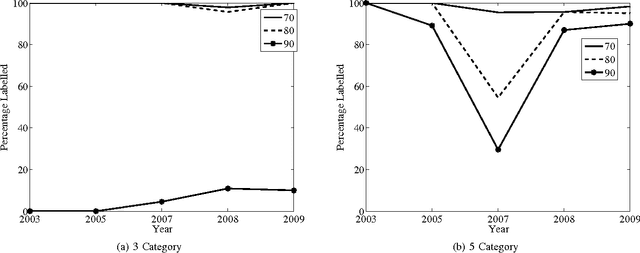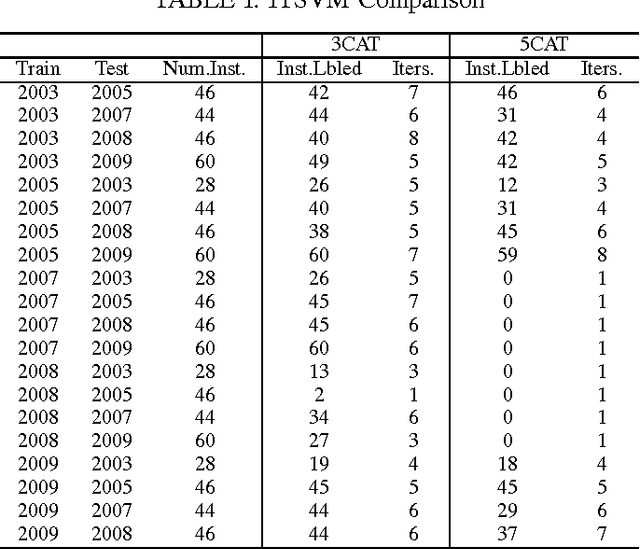Incremental Transductive Learning Approaches to Schistosomiasis Vector Classification
Paper and Code
Apr 06, 2017



The key issues pertaining to collection of epidemic disease data for our analysis purposes are that it is a labour intensive, time consuming and expensive process resulting in availability of sparse sample data which we use to develop prediction models. To address this sparse data issue, we present novel Incremental Transductive methods to circumvent the data collection process by applying previously acquired data to provide consistent, confidence-based labelling alternatives to field survey research. We investigated various reasoning approaches for semisupervised machine learning including Bayesian models for labelling data. The results show that using the proposed methods, we can label instances of data with a class of vector density at a high level of confidence. By applying the Liberal and Strict Training Approaches, we provide a labelling and classification alternative to standalone algorithms. The methods in this paper are components in the process of reducing the proliferation of the Schistosomiasis disease and its effects.
 Add to Chrome
Add to Chrome Add to Firefox
Add to Firefox Add to Edge
Add to Edge